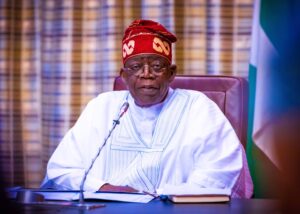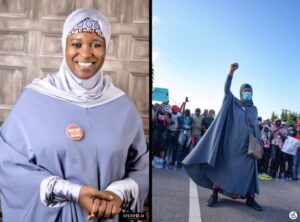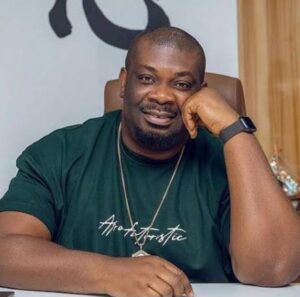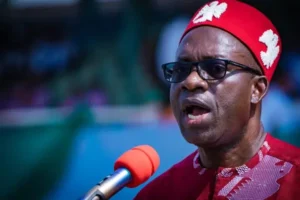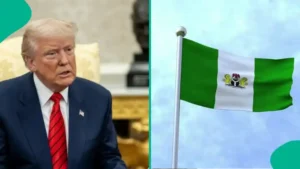The recent inauguration of Pope Leo XIV in Rome marked a momentous occasion not only for the global Catholic Church but also for nations like Nigeria, whose leaders were visibly present at the historic event. Among those who witnessed the moment firsthand was Catholic Bishop of Sokoto Diocese, Matthew Kukah, who recently shared deep insights on the significance of the event and what it means for Africa’s place in the world.
Appearing on Channels Television’s Political Paradigm, Bishop Kukah recounted the spiritual gravity and political symbolism that surround papal events, noting that the Vatican serves as an unmatched platform for high-level diplomacy and moral reflection.
“Every square inch of the Vatican during these ceremonies is a space for global negotiation,” Bishop Kukah said, recalling how past papal events drew together unlikely political figures ; such as Iran and Israel, or Mugabe and British leaders , into the same space.
According to Kukah, the inauguration of Pope Leo XIV was particularly historic for Nigeria, as it marked the first time a Nigerian President attended a papal installation. President Bola Tinubu was seen shaking hands and sharing a brief moment with the new Pope — both men having a common tie to Chicago, where Pope Leo XIV was born and Tinubu once lived.
“It’s a good starting point,” Kukah noted of the symbolic encounter, while stressing that such moments are more than just photo ops — they reflect Nigeria’s growing global recognition, especially within moral and religious spaces.
On the Quest for an African Pope
Responding to speculations about the possibility of an African Pope, Kukah offered a candid perspective: “Let’s win the World Cup first.” He criticized the popular notion of religious entitlement, likening it to Nigeria’s infamous “Emilokan” political mindset — the idea that leadership rotates by turn rather than merit.
He explained that the election of a Pope is a sacred process guided by the Holy Spirit, not political lobbying or regional favoritism.
“133 cardinals go into conclave — many don’t know each other personally, and there is no manifesto. It’s a spiritual duty, not a democratic campaign,” Kukah emphasized.
The Pope’s Role in African Affairs: Limited but Influential
While many Africans may expect Pope Leo XIV to take a keen interest in the continent’s development, Bishop Kukah offered a sobering reality check.
“It’s not the Pope’s job to fix the failures of corrupt African leadership,” he said, highlighting the Pope’s moral voice as influential, but ultimately secondary to the decisions made by African political elites.
Recalling the Pope’s 2023 visit to the Democratic Republic of Congo, Kukah pointed out that the Holy Father’s most powerful act was urging the international community to “take its hands off Africa” a plea for respect and autonomy rather than dependency.
Religion, Politics, and the Nigerian Story
Bishop Kukah also delved into the complex intersection between religion and politics in Nigeria. Tracing the historical defeat of the Sokoto Caliphate by colonial forces, he argued that many of today’s tensions — including the rise of extremist groups and the politicization of religion ,have roots in Nigeria’s colonial past.
“If you want to understand Boko Haram or the politics of Sharia in northern Nigeria, you must go back to 1903 when the Caliphate was defeated, and traditional Islamic power structures were dismantled by colonial administrators,” he explained.
The Call for Reformation Starts Within
As Kukah wrapped his interview, he reiterated that true change for Nigeria and Africa must come from within, not from Rome or the West.
“We’re not Syria or Libya. Nigeria has the resources and talent to thrive — we must stop looking to outsiders to solve what is essentially our internal crisis,” he concluded.
Will Africa Rise to the Challenge?
With the moral compass of the world once again reset by the rise of Pope Leo XIV, Bishop Kukah’s reflections serve as a powerful reminder: Africa’s future is not in the hands of the Vatican or the West, but in the decisions of its leaders and the awakening of its people.
What do you think? Should Africa rely more on external influence or take full responsibility for its development? Share your thoughts below!
#PopeLeoXIV #BishopKukah #NigeriaPolitics #AfricanLeadership #VaticanNews #ReligionAndPolitics
Like Our Story ? Donate to Support Us, Click Here
You want to share a story with us? Do you want to advertise with us? Do you need publicity/live coverage for product, service, or event? Contact us on WhatsApp +16477721660 or email Adebaconnector@gmail.com

